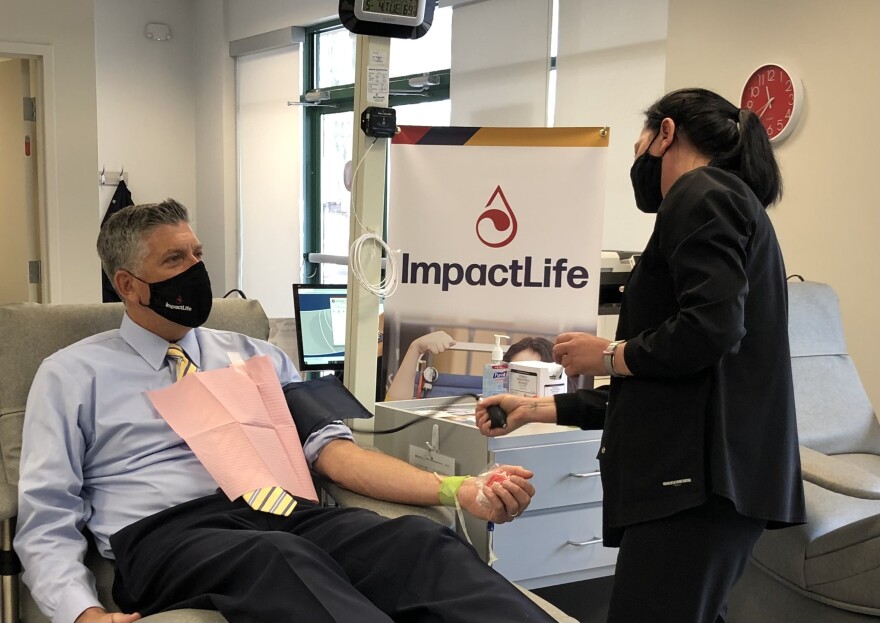The blood provider that serves a majority of Tri-County hospitals is joining a partnership to help meet increased demand for transfusions during critical-need scenarios.
Davenport, Iowa-based ImpactLife on Monday announced its participation in the Blood Emergency Readiness Corps (BERC), joining 30 other independent community blood centers in an effort to prepare for instances of high demand.
“If an emergency happens within our own service region and we don't have enough blood, we have access to the BERC partnership to call on, just like they have access to us,” said Amanda Hess, ImpactLife’s vice president of donor relations and marketing. “It's really a key network and something that we’ve not had before.”
Mike Rasso, director of sales and inventory, said participating blood centers will hold extra units in reserve to share in the wake of natural disasters or mass shootings.
“It builds that supply that previously wasn't there. We relied on the goodwill of other centers to give up units in emergent need, and unfortunately, those weren't always there,” said Rasso. “We would see seasonal shortages, holidays, summer and so on. This does again assure that that supply of inventory is available for an emergent need.”
Rasso said ImpactLife began the process of joining the BERC partnership in November, and at the time only 15 blood centers were participating.
“So, it's having growth, which is great for supply and reserve,” he said. “And those are the two key words for this program: commitment and reserve. We haven't seen that previously.”

The centers will operate in a three-week rotating “on-call” schedule to serve as emergency providers. Rasso said the participating centers will have a minimum volume to set aside for a seven-day window for their rotation, and blood units that aren’t used would be pushed back into the general inventory.
“ImpactLife needs to collect an average of 3,600 red cell products per week to meet patient need,” said Holly Yates, director of donor relations. “Having a consistent, strong and stable calendar of events and scheduled donors is the best way to ensure that we can meet patient needs in the communities we serve.
“An increase in demand due to these natural disasters or a mass casualty event can have an impact on our day-to-day inventory levels, and possibly create an inability for blood centers to respond when an urgent need arises.”
Formerly known as the Missouri Valley Regional Blood Center in the Peoria area, ImpactLife serves 126 hospitals across Illinois, Iowa, Missouri and Wisconsin, including OSF Saint Francis Medical Center and UnityPoint Health’s Methodist, Proctor and Pekin hospitals.
Hess said that before partnering in BERC, providers facing a mass-need event generally relied on other blood centers to send additional units from their available inventory — but only if excess was available.
“That’s not something that is effective in terms of emergency and disaster planning,” she said. “You have to have something you can rely on, and that's what BERC does for all of us. It really provides us with peace of mind.
“It really helps us get that message out to our communities that we need support all year round, so that we can have this reserve ready to go in advance. It's what's already on the shelf that helps patients when disaster strikes, not the donations that come in after. It's what came in the days, the weeks, and the month before.”


